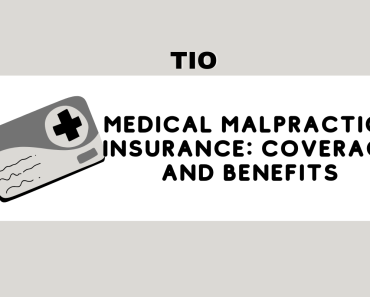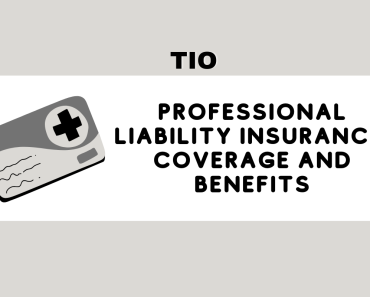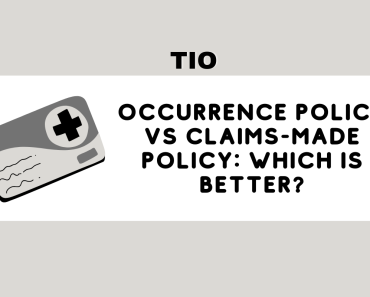As a director or officer of a company, you have a lot of responsibilities on your shoulders. You make critical decisions that can affect the company’s success or failure, and these decisions can come with significant risks. That’s where directors and officers (D&O) insurance comes in. In this article, we’ll explore what D&O insurance is, what it covers, and its benefits for both the directors and officers and the company itself.
Table of Contents
- What is Directors and Officers Insurance?
- Who Needs D&O Insurance?
- What Does D&O Insurance Cover?
- Side A Coverage
- Side B Coverage
- Side C Coverage
- Benefits of Directors and Officers Insurance
- Protection for Directors and Officers
- Protection for the Company
- Attracting and Retaining Talent
- How Much Does D&O Insurance Cost?
- How to Choose a D&O Insurance Policy
- Determine Your Coverage Needs
- Evaluate Insurance Providers
- Consider the Policy’s Limitations
- Review the Policy Period and Renewal Terms
- D&O Insurance FAQs
- What is the difference between Side A and Side B coverage?
- Is D&O insurance mandatory?
- Can a company purchase D&O insurance for past acts?
- What happens if a claim is made against a director or officer?
- Can D&O insurance cover legal fees for criminal acts?
1. What is Directors and Officers Insurance?
Directors and Officers insurance (D&O) is a type of liability insurance that protects directors and officers of a company against claims made against them for wrongful acts in their roles. These claims can come from a variety of sources, including shareholders, employees, customers, and regulatory bodies.
D&O insurance is designed to protect directors and officers from financial losses, such as legal fees and settlements, that may arise from these claims. It can also provide protection for the company itself.
2. Who Needs D&O Insurance?
Any company with directors and officers should consider purchasing D&O insurance. This includes public, private, and non-profit companies.
Directors and officers can be held personally liable for their actions while serving in their roles. Even if a director or officer is acting in good faith, they can still face legal action. D&O insurance can provide protection in these situations.
3. What Does D&O Insurance Cover?
D&O insurance typically provides coverage for three types of claims, known as “sides”:
3.1. Side A Coverage
Side A coverage provides protection for directors and officers when they are not indemnified by the company. This can happen when the company is unable or unwilling to provide indemnification due to bankruptcy or other financial difficulties.
3.2. Side B Coverage
Side B coverage provides protection for the company when it indemnifies its directors and officers for claims made against them. This can include legal fees and settlements.
3.3. Side C Coverage
Side C coverage provides protection for the company itself when it faces claims for wrongful acts. This can include claims related to securities fraud or other violations.
4. Benefits of Directors and Officers Insurance
There are several benefits of having D&O insurance for both the directors and officers and the company.
4.1. Protection for Directors and Officers
D&O insurance can provide financial protection for directors and officers who face legal action for wrongful acts in their roles. It can cover legal
costs, settlements, and other expenses related to the claims.
In addition to financial protection, D&O insurance can also provide peace of mind for directors and officers. Knowing that they have coverage in case of a claim can help them focus on their duties and responsibilities without worrying about personal financial risk.
4.2. Protection for the Company
D&O insurance can also provide protection for the company itself. If a claim is made against a director or officer, the company may be required to provide indemnification. D&O insurance can help the company cover the costs of indemnification, including legal fees and settlements.
In addition, D&O insurance can help the company attract and retain directors and officers by providing them with an added layer of protection. This can be particularly important for startups and other companies that may face more risks.
4.3. Attracting and Retaining Talent
Having D&O insurance can also help a company attract and retain top talent. Directors and officers are more likely to join and stay with a company that offers protection against personal financial risk.
D&O insurance can also help companies differentiate themselves from their competitors. Offering D&O insurance can be a sign of a company’s commitment to good corporate governance and can help build trust with shareholders and other stakeholders.
5. How Much Does D&O Insurance Cost?
The cost of D&O insurance can vary depending on a number of factors, including the size of the company, the industry it operates in, and the level of coverage needed.
Smaller companies may be able to purchase coverage for a few thousand dollars per year, while larger companies may pay hundreds of thousands of dollars or more. However, the cost of D&O insurance is generally a small fraction of the potential financial losses that can result from a claim.
6. How to Choose a D&O Insurance Policy
When choosing a D&O insurance policy, there are several factors to consider.
6.1. Determine Your Coverage Needs
Before purchasing D&O insurance, it’s important to determine the level of coverage needed. This will depend on a variety of factors, including the size and nature of the company, the risks it faces, and the number and type of directors and officers.
6.2. Evaluate Insurance Providers
When choosing a D&O insurance provider, it’s important to evaluate their reputation and financial stability. Look for providers with a strong track record of paying claims and providing quality customer service.
6.3. Consider the Policy’s Limitations
D&O insurance policies can have limitations and exclusions, so it’s important to read the policy carefully and understand what is and isn’t covered. Some policies may exclude coverage for certain types of claims or impose limits on the amount of coverage available.
6.4. Review the Policy Period and Renewal Terms
Finally, it’s important to review the policy period and renewal terms. Some policies may have a one-year term, while others may be longer. It’s also important to understand the renewal process and any potential changes to the policy terms or premiums.
7. D&O Insurance FAQs
7.1. What is the difference between Side A and Side B coverage?
Side A coverage provides protection for directors and officers when they are not indemnified by the company, while Side B coverage provides protection for the company when it indemnifies its directors and officers for claims made against them.
7.2. Is D&O insurance mandatory?
D&O insurance is not mandatory, but it is recommended for companies with directors and officers.
7.3. Can a company purchase D&O insurance for past acts?
D&O insurance policies typically provide coverage for claims made during the
policy period, so it may not provide coverage for past acts. However, some policies may offer retroactive coverage for past acts.
7.4. Can D&O insurance be cancelled?
D&O insurance policies can be cancelled by either the insurer or the insured. However, cancellation may result in a penalty or loss of premium.
7.5. What should I do if I need to make a claim under my D&O insurance policy?
If you need to make a claim under your D&O insurance policy, it’s important to notify your insurance provider as soon as possible. Provide all relevant information and documentation, and cooperate fully with the claims process.
8. Conclusion
Directors and officers play a critical role in the success of a company, but they also face significant personal financial risk. D&O insurance can provide important protection for directors, officers, and the company itself. By understanding the coverage and benefits of D&O insurance, companies can make informed decisions about their insurance needs and protect themselves against potential financial losses.









